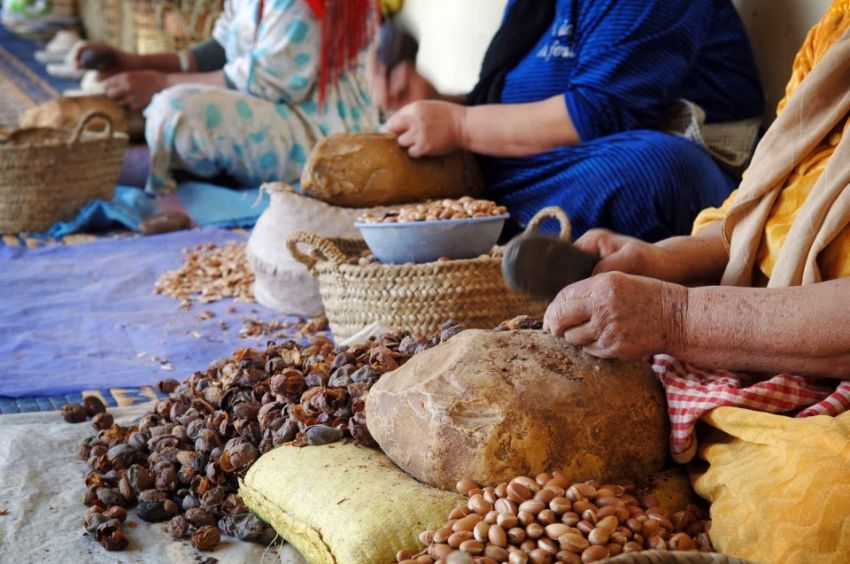
The government and professionals aim to double argan production by 2030 by increasing the allocated areas and continuing the rehabilitation of argan forests. According to the 2021-2030 program agreement signed between the state and professionals at the International Agriculture Exhibition in Meknes last week, the goal is to double the allocated areas to reach 411,000 hectares and produce 10,000 tons of argan oil.
The signing of the agreement coincides with the celebration of the International Argan Tree Day on May 10, recognized by the United Nations General Assembly to honor this indigenous tree in Morocco and acknowledge the Kingdom’s efforts to preserve this botanical wealth.
A financial envelope will be allocated to achieve the objectives of the program agreement, amounting to approximately 3.64 billion dirhams. The Professional Federation of the Argan Chain (FIFARGANE) will contribute 128.27 million dirhams, with the state contributing 3.51 billion dirhams.
This is the second agreement of its kind targeting the argan chain, following the first one spanning from 2011 to 2020, aiming to achieve goals that complement what was achieved by the end of 2020. The new agreement states that with the completion of the Green Morocco plan, the rehabilitated argan tree area reached 164,470 hectares, which is 82% of the specified goal.
The government and professionals aspire to market approximately 30% of the production through a digital platform by 2030, continue the rehabilitation of argan forests, rely more on agricultural argan by reaching 50,000 hectares, improve extracted oil production, develop exports and packaging stages, and modernize distribution and marketing channels.
Among the commitments of the signatory parties to the agreement is that the government and FIFARGANE will contribute to the completion of a study related to implementing multi-risk insurance service and raising awareness of its importance for workers and the sector. This includes obligating all farmers, beneficiaries, operators, and workers to engage in social protection workshops and receive support and guidance from the state.
The commitments also include contributing to the completion of studies aimed at diversifying and boosting exports and supporting professionals to diversify their pathways, increasing exported quantities of argan oil to reach 5,000 tons by 2030.
The parties commit to combat unofficial oil exports to achieve transparency in transactions, establish a statistical information system for production and export, and seek new partners and potential export outlets.
To boost exports, the state, within the agreement, commits to supporting FIFARGANE in finding new partners and potential outlets. Regarding the restructuring and modernization of marketing and distribution networks, the program agreement stipulates organizing and modernizing marketing and distribution networks, raising awareness of the importance of organizing cooperatives and supporting their establishment, especially women’s cooperatives, participating in land mobilization to build centers and units for collecting, valorizing, and storing raw materials, and contributing to the development of e-commerce.
One of the goals is also to establish contracts with supermarkets to define how they are supplied with high-quality argan oil, as well as with cafes, restaurants, and hotels, creating solidarity platforms and markets, and participating in developing a roadmap to combat unofficial trade.

